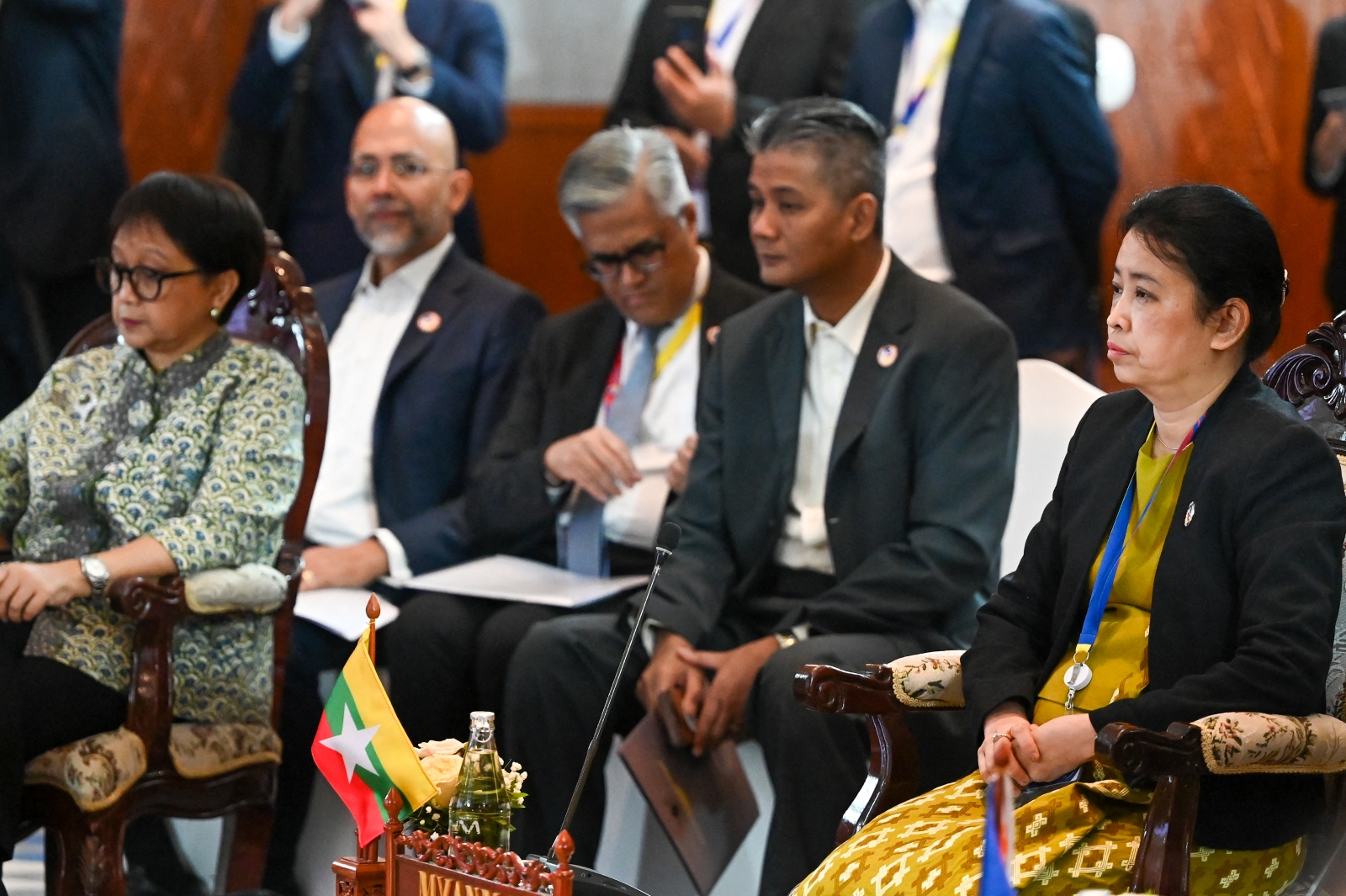By FRONTIER
YANGON – The government and two United Nations agencies have agreed the terms of a memorandum of understanding to ensure the “voluntary, safe, dignified and sustainable repatriation” of refugees from Bangladesh.
The UN refugee agency and the UN Development Programme said in a joint statement that the text was concluded yesterday in Nay Pyi Taw and would be signed during the next week.
“Since the conditions are not conducive for voluntary return yet, the MoU is the first and necessary step to support the government’s efforts to change that situation,” they said.
Speaking at a press conference in Nay Pyi Taw yesterday, Ministry of Foreign Affairs permanent secretary U Myint Thu said the agreement would be signed “soon”.
Support more independent journalism like this. Sign up to be a Frontier member.
“While we are discussing with UNDP and UNHCR, we are trying to be as flexible as possible,” he said.
The government also announced last night that it would form an “independent commission of inquiry” to investigate alleged human rights violations in northern Rakhine State “and related issues”. The commission will consist of three members, including an “international personality”, and assisted by national and international legal and technical experts.
Up to 750,000 Muslim refugees, the majority of whom identify as Rohingya, have fled to Bangladesh since October 2016, when the Arakan Rohingya Salvation Army launched attacks on police outposts.
The military has been accused of ethnic cleansing and widespread human rights abuses, including killings, rapes and destruction of homes. The government has previously blocked independent attempts to verify the claims, and the military’s own investigation cleared it of any wrongdoing.
Its refusal to investigate allegations of rights abuses have prompted attempts to refer it to the International Criminal Court. Asked by reporters about this last week, government spokesman U Zaw Htay acknowledged that Myanmar could be brought to the ICC if it refuses or is unable to undertake a credible investigaiton into the allegations.
“Our government is willing and capable of conducting an investigation. We will take action against anyone who violates laws … Only when the government’s process is finished, international court has to consider [accepting a case against Myanmar],” he said.
Stalled repatriation process
Myanmar signed a repatriation agreement with Bangladesh in November 2017 but refugees have shunned the process, complaining of a lack of guarantees on safety, citizenship and resettlement. The Myanmar government says ARSA forces have intimidated refugees and told them not to cooperate with its repatriation efforts.
On May 27, the government announced a first batch of 58 refugees had returned, but said in a statement that all 58 had been arrested while crossing back to Myanmar illegally, and some had been given prison sentences, raising doubts about whether the return was voluntary or dignified.
Under the agreement with the UN, “the majority” of refugees would be able to return “to their places of origin or of their choosing”, the agencies said.
The agencies will be granted access to northern Rakhine State, including destroyed Muslim villages, for the first time since August 2017, when ARSA launched a second wave of attacks. With this access, UNHCR will be able to assess conditions and carry out protection activities, it said.
“This will also enable UNHCR to eventually provide independent information to refugees about the conditions in their places of origin, helping them to make informed decisions if the conditions are right for them to return in safety and dignity.”
The agreement will also affirm the government’s commitment to work with the agencies to find long-term solutions to the crisis in line with the recommendations of the Advisory Commission on Rakhine State.
Led by former UN secretary-general Mr Kofi Annan, the commission submitted its final report in August 2017 but so far there has been little progress on implementing key recommendations, which include establishing a clear and voluntary pathway to citizenship and ensuring freedom of movement for all people in Rakhine State.







